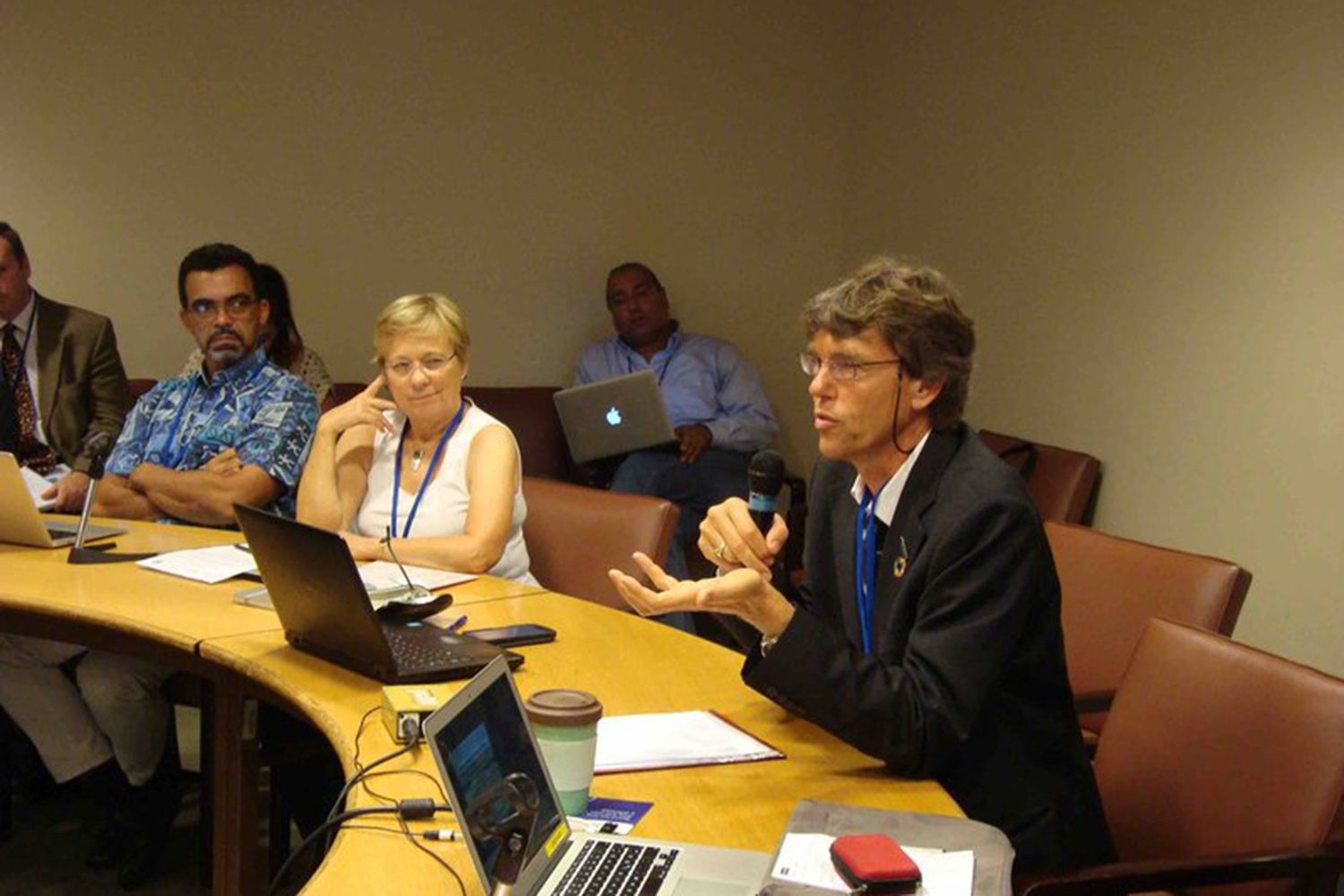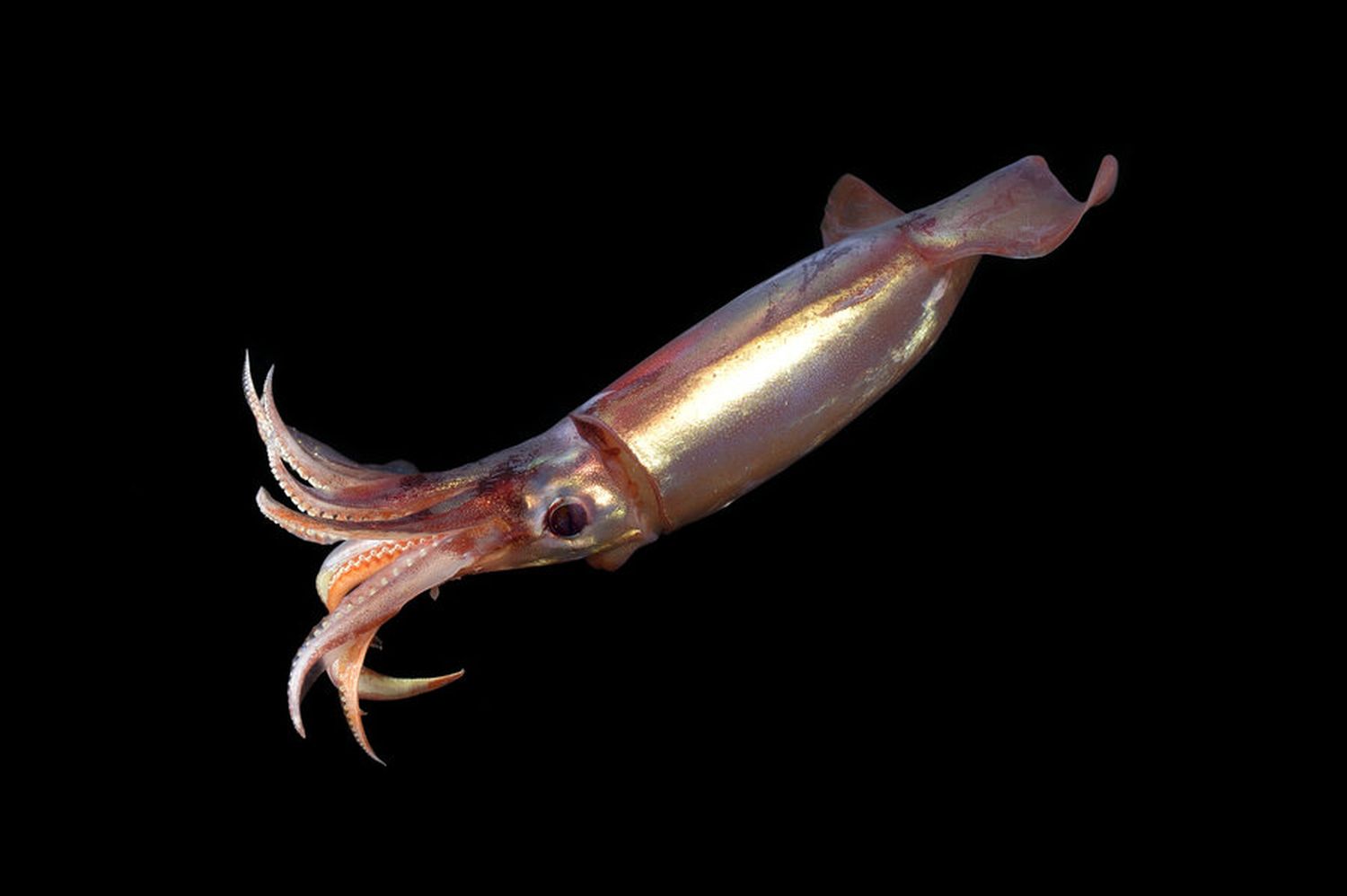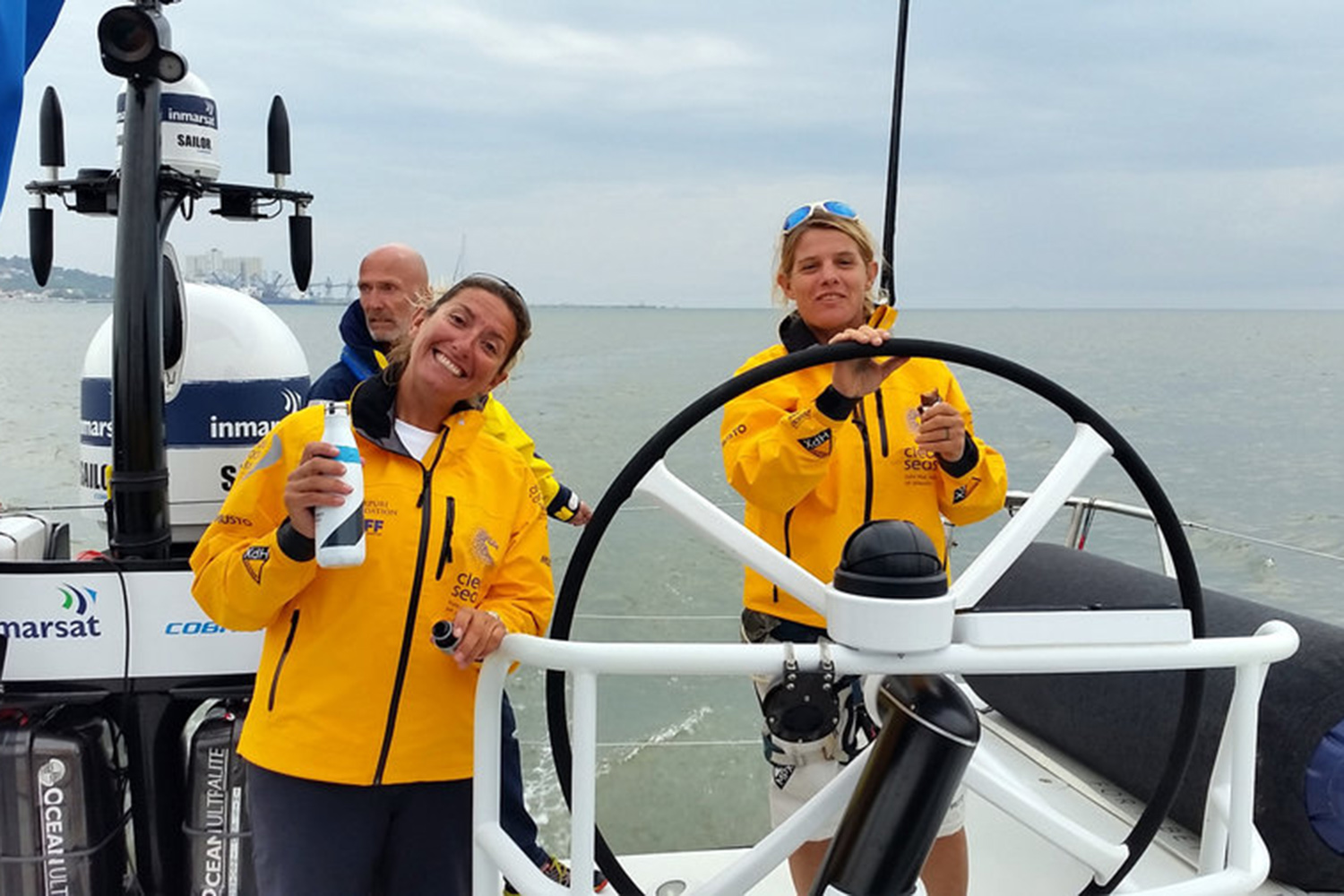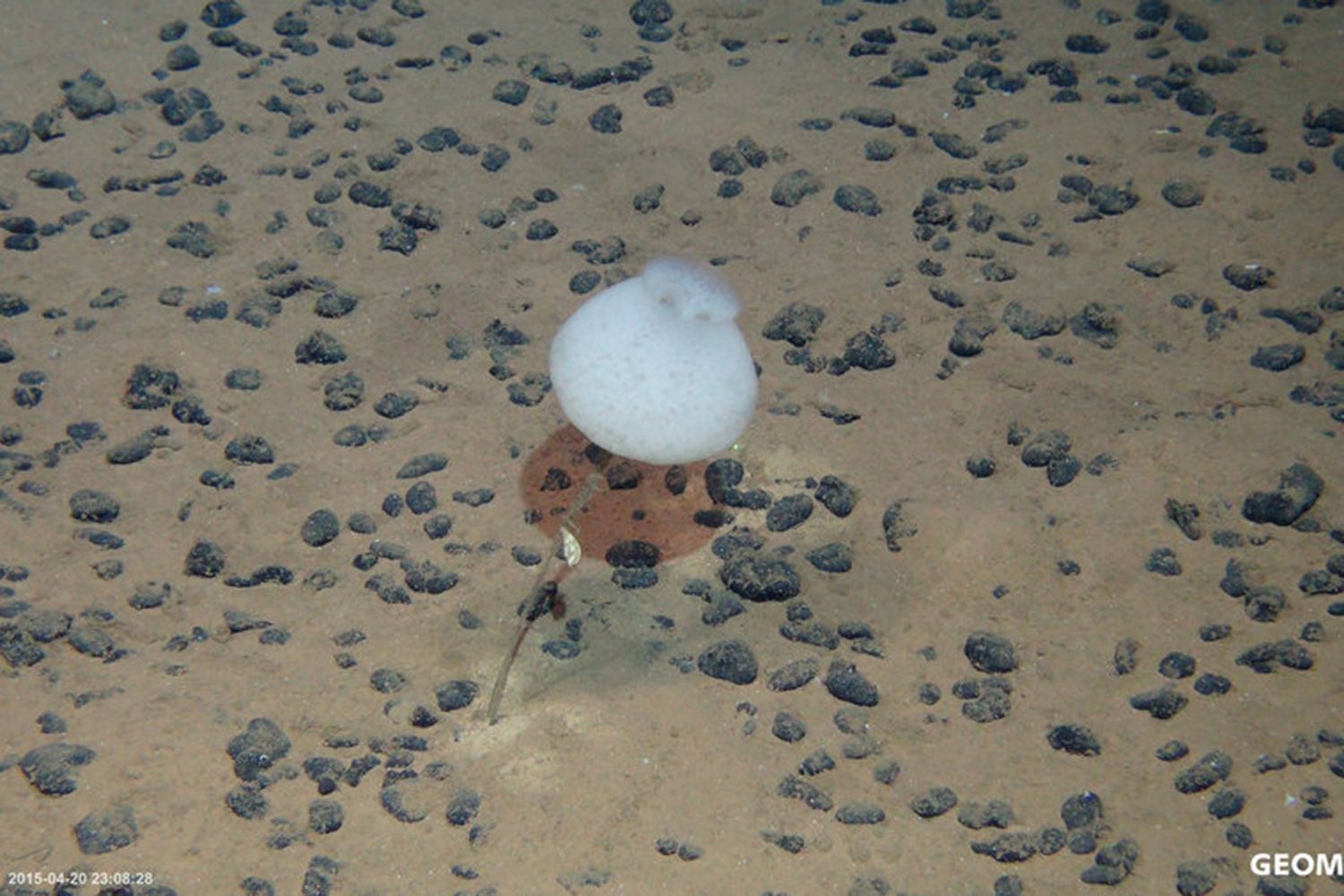Acidification is recognized as a threat to the ocean system
BIOACID, a joint German research project on ocean acidification coordinated by GEOMAR, together with international partners such as the Plymouth Marine Laboratory (PML), the Global Ocean Acidification Observing Network (GOA-ON), the Ocean Acidification International Coordination Center (OA-ICC), The Partnership for Observation of the Global Oceans (POGO) and the UK Ocean Acidification Research Program (UKOA) had an extensive information booth at the Conference. Martina Stiasny from the GEOMAR took the opportunity to present the subject of ocean acidification in direct exchange with decision makers in politics and business, NGOs and research institutes. "Other issues such as sea level rise or warming are still better known, but we have noted during many talks that acidification is also seen as a serious threat to the ocean system," says Stiasny.
The information booth showed how acidification, temperature rise, sea level rise and oxygen deficiency threaten the ocean, what consequences this can have for society and how business and politics can contribute to more sustainable development.
Oxygen depletion is another drastic change in the ocean
A further aspect of currently measurable changes in the ocean is the loss of oxygen. On this subject, the Global Ocean Oxygen Network (GO2NE) organized a very well-attended information event, in which the Kiel Collaborative Research Center 754 "Climate - Biogeochemical Interactions in the Tropical Ocean" played a leading role. Among the speakers was the spokesperson of the SFB754, Prof. Andreas Oschlies from GEOMAR. "The topic attracted great interest. This was shown by the exciting discussion after the talks," according to Professor Oschlies, "not only representatives of government agencies and international organizations, but also local actors and entrepreneurs participated in the event."
Numerous approaches to resolving the causes of oxygen deficiency, especially in coastal waters, have already been discussed. "Originally, we wanted to raise awareness for the issue among policy makers and different stakeholders. The fact that we could then even discuss concrete solutions on an international scale was more than we had hoped for in the beginning," says Professor Oschlies in retrospect.
Sustainable ocean observation will be the basis for important decisions in the future
The joint European project AtlantOS, coordinated at GEOMAR, which aims at innovation and more international cooperation in regard to sustainable ocean observations in the Atlantic, presented plans for the future within the framework at a very well-visited side event, together with the international ocean observation network (GOOS) and partners from the Pacific, Indian Ocean and South Ocean."In particular, it was found that ocean observations play a key role in the creation of indicators for the state of the ocean," explains Prof. Martin Visbeck from GEOMAR, "This information will be summarized in a comprehensive report on the state of the ocean for decision-makers, a World Ocean Assessment." "The need to create sustainable ocean observation was evident throughout the conference and was also incorporated into the official final document," added Dr. Toste Tanhua from GEOMAR and co-chair of GOOS.
Scientists from GEOMAR organized two other events dealing with integrative and solution-oriented marine research. The international research program FutureEarth launched a new network together with other organizations (IOC-UNESCO, ICSU-SCOR and WCRP). "The Ocean Knowledge For Action Network, in short KAN, will connect the academic sciences more closely to societal actors to enable them to work together to create future-oriented solutions which are feasible in practice," says Prof. Visbeck, "The Kiel marine sciences have played a key role in the establishment of the network and organized a preparatory meeting in Kiel in December 2016."
Englisch Version of the Ocean Atlas 2017 presented
During the Ocean Conference the English version of the Ocean Atlas 2017 (Ocean-Atlas.org) was also presented. The Atlas was published in mid-May by the Heinrich Böll Foundation together with the Kiel Cluster of Excellence "The Future Ocean" and the monthly newspaper for international politics, Le Monde Diplomatique. Numerous scientists from GEOMAR contributed to the publication. "There was a lot of international praise for the first comprehensive Atlas which covers all aspects of the Sustainability Goal # 14 in a clear and comprehensible manner. The intensive discussion went on for a long time after the event," says Professor Visbeck, who is also the spokesperson for the Cluster of Excellence "The Future Ocean."
Links:
www.bioacid.de The project BIOACID
www.sfb754.de Collaborative Research Centre 754
www.atlantos-h2020.eu The Project AtlantOS
www.ozean-der-zukunft.de The Cluster of Excellence "The Future Ocean"
https://meeresatlas.org The Ocean Atlas 2017
https://oceanconference.un.org The website of the Ocean Conference
…



